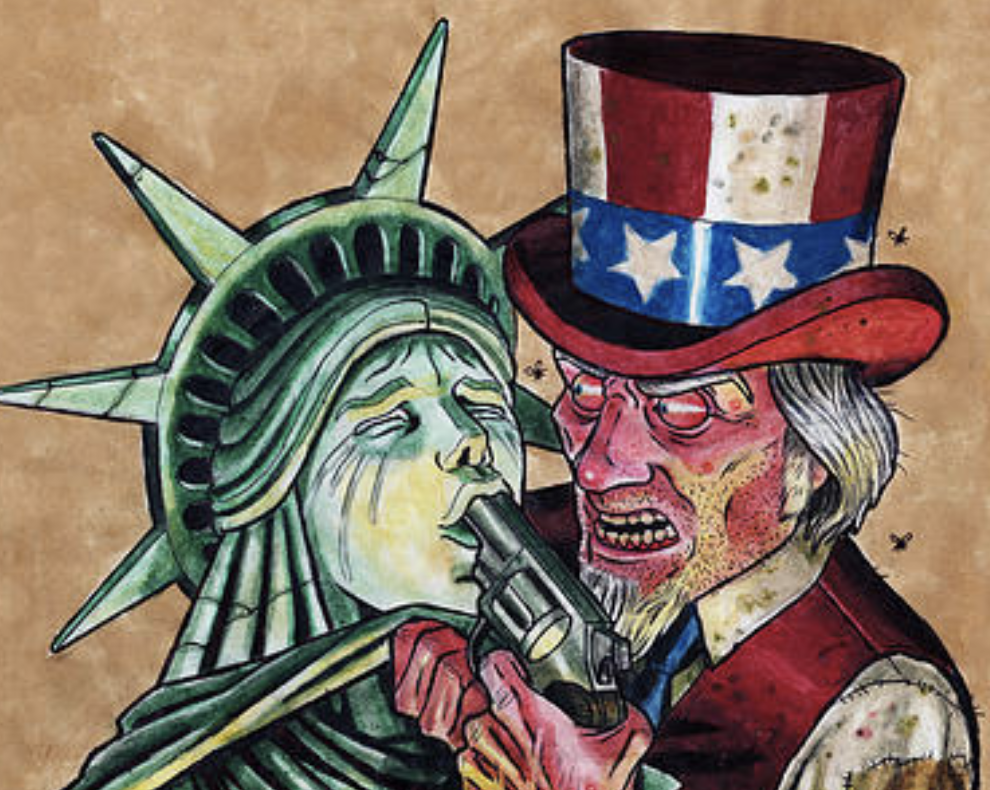- CitizenBane@lemmy.world
- Banned
- 3 Posts
- 26 Comments
- CitizenBane@lemmy.worldBannedto
 410·21 days ago
410·21 days ago🎭 Original Claim:
"If it wasn’t for Nader, Al Gore would’ve been our president. So he can fuck all the way off."🔍 Step 1: Emotional Noise Filter
This claim is loaded with emotional intensity:
It uses blame-framing (“because of Nader”) and moral outrage (“he can fuck all the way off”). This is outrage induction, not just opinion — it presents Nader’s candidacy as not only consequential, but morally unforgivable.🛑 Distortion Detected → Emotional Persuasion: The tone demands rejection of a person based on an emotionally charged version of a historical what-if. 📌 Let’s neutralize the distortion using the [[Framing Neutralizer (FN)]]:
Framed as: “Nader’s candidacy ruined everything, therefore he deserves total dismissal.” Reframed neutrally: “Some analysts believe Ralph Nader’s third-party run in 2000 may have affected the outcome of the election. The debate remains contentious.”Notice how that removes emotional judgment and loaded blame, but preserves the subject. 🔎 Step 2: Relevance Check
Is this still a meaningful claim today?
In political history discussions: yes — it’s a key moment often cited when discussing third-party impact. In personal outrage: less so, unless the speaker is still emotionally processing the 2000 election.So we ask: is this a political analysis or a grudge statement? 🧩 Step 3: Clarity & Precision Test
Let’s try a mini Precision Breakdown (PB):
Core Assertion: Nader’s candidacy caused Al Gore to lose. Supporting Evidence?: This is debated. Nader got 97,000 votes in Florida; Bush won by ~500. But... Missing Context?: Gore lost his home state (Tennessee). The Supreme Court intervened. Ballot design confusion (butterfly ballot) also played a role. Perception Impact: Frames one person as solely responsible — simplifies a complex, multi-factor event.🧭 Bottom Line via Clarity Compass (CC): Direction Assessment Truth Check Partially grounded in historical fact Evidence Check Lacks full context or causal certainty Context Check Oversimplifies election outcome factors Impact Check High emotional impact, blame-focused framing 🪞 Reframed for Clarity:
“There’s debate over whether Nader’s 2000 campaign affected Gore’s loss — but blaming him alone ignores other pivotal factors, like the Supreme Court decision, ballot issues in Florida, and Gore’s loss of key states.”
- CitizenBane@lemmy.worldBannedto
 2·24 days ago
2·24 days ago
- CitizenBane@lemmy.worldBannedto
 8·25 days ago
8·25 days agoI prefer shrimp and white wine.
- CitizenBane@lemmy.worldBannedOPto
 1·28 days ago
1·28 days agoCompared to the kids in the mines, they would be considered rich.
- CitizenBane@lemmy.worldBannedOPto
 41·29 days ago
41·29 days agoYes
- CitizenBane@lemmy.worldBannedto
 5·29 days ago
5·29 days agoMy ex and I once found nearly $500 in cash in a Lowe’s parking lot. What did we do? We put it in our pocket, and used it to help pay that month’s rent.
- CitizenBane@lemmy.worldBannedto
 4·29 days ago
4·29 days agoI want to move to Copenhagen soon. I think once I get there, I’ll tell the Danes I’m Canadian instead of American.
- CitizenBane@lemmy.worldBannedtoMicroblog Memes@lemmy.world•still they don't get moderatedEnglish15·29 days ago
You seem to be personally invested in this. Why?
deleted by creator
deleted by creator
- CitizenBane@lemmy.worldBannedOPto
 21·1 month ago
21·1 month agoI’ve opened up the custom GPT to the whole community. Please share if you find it valuable.
- CitizenBane@lemmy.worldBannedto
 2·1 month ago
2·1 month agoGenerational alcohol abuse will do that.
I don’t want to sound like a shill, but I’ve created a Custom GPT to help recognize distortion/misinformation/propaganda.
https://a.lemmy.world/lemmy.world/post/27608970I’m hoping to receive more feedback on it. I’d love some help refining it too. Yes, I plan on open sourcing it once I get past the “OpenAI problem”.
- CitizenBane@lemmy.worldBannedOPto
 21·1 month ago
21·1 month agoIt will be open sourced eventually. I need to figure out how to properly replicate the responses on other LLMs, whether local or not. I’m seeking help in this.
- CitizenBane@lemmy.worldBannedOPto
 11·1 month ago
11·1 month agoThank you ❤️
- CitizenBane@lemmy.worldBannedto
 3·1 month ago
3·1 month agoAnal Musk
- CitizenBane@lemmy.worldBannedOPto
 11·1 month ago
11·1 month agoI’d need better hardware to do that, unfortunately. Either way, some billionaire would get money for me to do that.
Yes, and rightfully so.
https://www.politico.com/news/magazine/2023/12/19/godwins-law-trump-hitler-00132427
Even Godwin himself said that comparing Trump to Hitler and the GOP to Nazis is apt.
https://www.politico.com/news/magazine/2023/12/19/godwins-law-trump-hitler-00132427


Prompt: “Let’s look at some real-world studies on this.”
The relationship between cannabis legalization and crime rates is multifaceted, with studies offering varied insights depending on the specific context and location. Here’s a synthesis of findings from several real-world studies: 📉 Reduction in Cannabis-Related Arrests
🕊️ Impact on Violent Crime
🚨 Law Enforcement Perspectives
While some studies indicate reductions in certain crime rates post-legalization, law enforcement officials have expressed concerns: Wikipedia
🧠 Mental Health and Violence Concerns
Some research points to potential links between cannabis use and mental health issues: Wikipedia
🧾 Conclusion
Overall, the evidence suggests that cannabis legalization does not uniformly lead to increased crime rates. In many instances, legalization has been associated with reductions in cannabis-related arrests and, in some cases, decreases in certain types of violent crime. However, concerns remain regarding mental health implications and the potential for increased availability of unregulated cannabis products. It’s essential to consider local contexts and continue monitoring the long-term effects of legalization policies.
Would you like to explore specific aspects further, such as the impact on youth or economic implications?